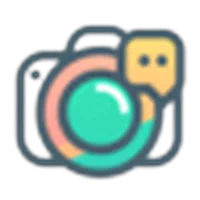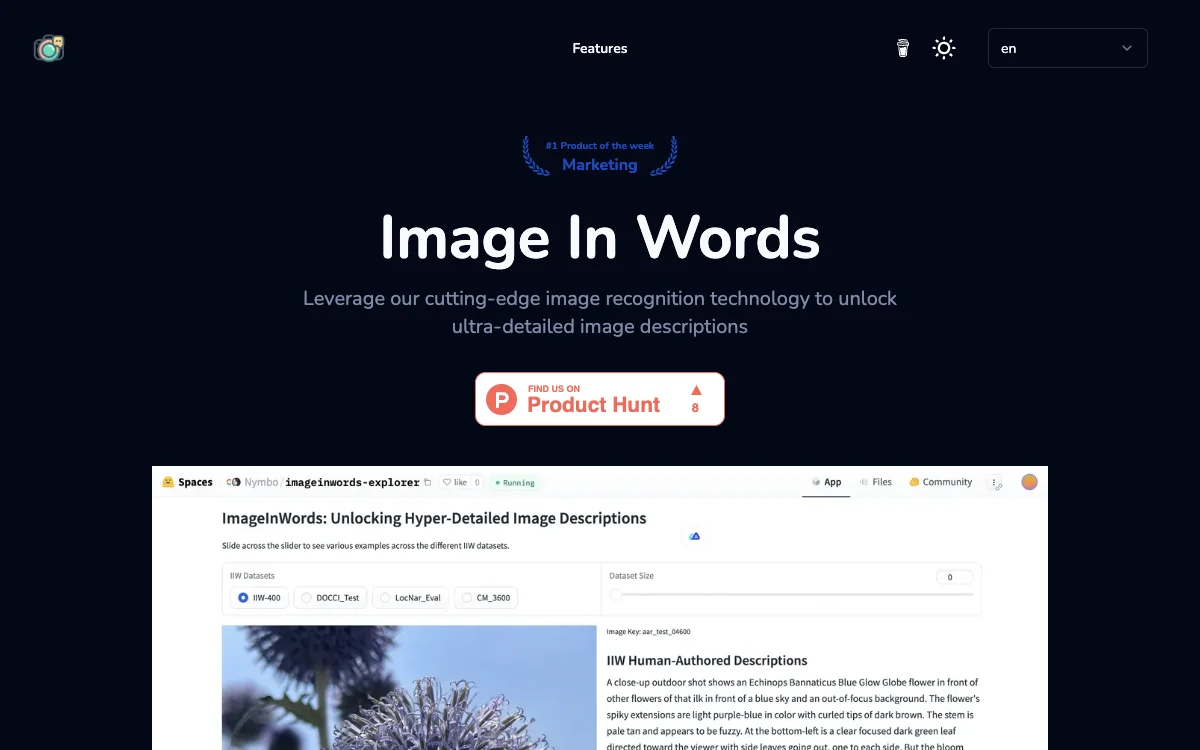Image In Words represents a significant leap forward in the field of image recognition and description. Utilizing a sophisticated generative model, it transforms visual content into detailed, accurate, and natural text descriptions. This technology is particularly beneficial for large language model (LLM) assistants, offering enhanced recognition and description capabilities in complex scenarios.
The core of Image In Words lies in its human-involved annotation framework, which ensures each description is not only detailed but also highly accurate. This approach addresses the common pitfalls of existing datasets, such as short and irrelevant descriptions, by providing a richer, more comprehensive narrative of the visual content.
One of the standout features of Image In Words is its ability to significantly improve model performance. The vision-language model, fine-tuned with IIW data, shows a 31% improvement in description accuracy and coherence compared to previous models. This enhancement is crucial for applications requiring precise and meaningful image descriptions.
Moreover, the framework is designed to reduce fictional content in descriptions through rigorous verification techniques. This ensures that the descriptions accurately reflect the image details without adding non-existent elements, thereby maintaining the integrity and reliability of the generated text.
Accessibility and comprehensiveness are also key benefits of Image In Words. The descriptions are not only detailed and easy to read but also understandable by a broad audience. This makes the technology particularly valuable for improving accessibility for visually impaired users, enhancing image search functionalities, and enabling more accurate content review.
The applications of Image In Words are vast and varied. From improving accessibility for visually impaired users to enhancing image search functionalities and enabling more accurate content review, the potential of this technology spans across different fields. Its ability to generate detailed and accurate descriptions from images opens up new possibilities for leveraging visual content in various industries.
In conclusion, Image In Words is a groundbreaking tool that unlocks the potential of image recognition technology. By generating ultra-detailed and accurate descriptions from images, it not only enhances the capabilities of large language model assistants but also improves accessibility and search functionalities across different fields.

